Best headphones for digital piano: over-ear options for every budget
Our pick of digital piano headphones with a focus on audio performance and comfort
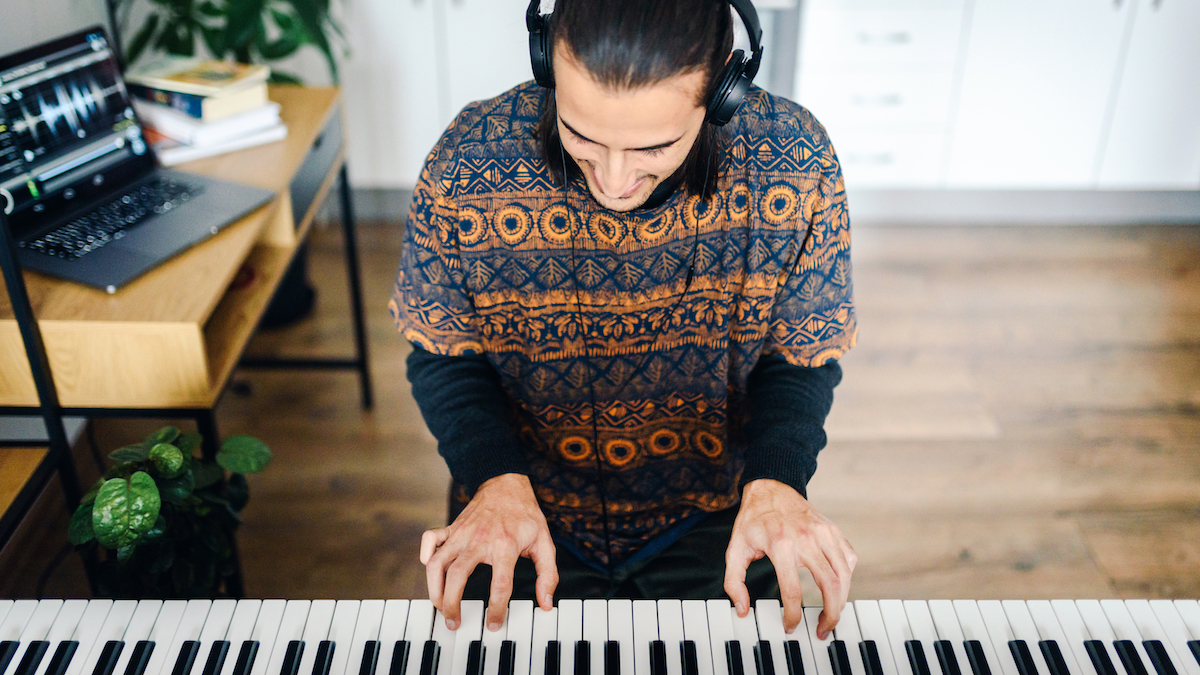
The forward leaps in sampling technology and playability of today’s digital pianos now puts them firmly on par with traditional instruments in terms of sound quality. When it comes to practicality, however, you could argue that digital pianos have several distinct advantages over their acoustic counterparts; they’re much lighter, they don’t need to be tuned regularly to sound their best, but most importantly they give you the freedom to be able to plug in a pair of the best headphones for digital piano and practise without fear of disturbing your family members or neighbours.
With all that in mind, the choice of headphones that you use with your piano can have a profound impact on the overall experience. The better your piano sounds in your headphones, the more inspiring your playing will sound, and this in turn will have a profound effect on how much you’ll want to continue with it. An uninspiring sound will quickly lead to disillusionment, making it likely that you’ll quickly tune out, switch off and go do something else.
So the ideal digital piano headphones for you should offer an even response across the frequency range, good exclusion from external distractions to help keep you focused on your playing and be comfortable enough to wear for long practice sessions. Digital pianos are designed to emulate the stereo spread from left to right across the keyboard that you would experience when playing an acoustic piano (low notes from the left, high notes from the right), so a wide stereo soundstage is also important in order to reproduce this natural stereo behaviour effectively in your headphones.
Best headphones for digital piano: Our top picks
Whether it’s playing digital piano, plugging into a guitar amp, mixing a track or general music listening, the Audio-Technica ATH-M50x is the go-to pair for many multi-tasking musicians. They offer warm lows and glittering highs, they’re supremely comfortable and they represent some of the best value out there - they rank second in our list of the best budget studio headphones, too.
For similar performance at a slightly lower price, the Hi-X15s from newcomers Austrian Audio are worth a shout. One of the standout features is the build quality, which means they should last well if they’re looked after.
If you’re on a budget and need some dedicated digital piano headphones, Yamaha HPH-100s have been optimised specifically for pianists, offering a great sound with rich bass, plus they’re comfortably light weight. You should be able to find a pair for less than $/£70, so they’re also easy on the wallet.
Best headphones for digital piano: Product guide
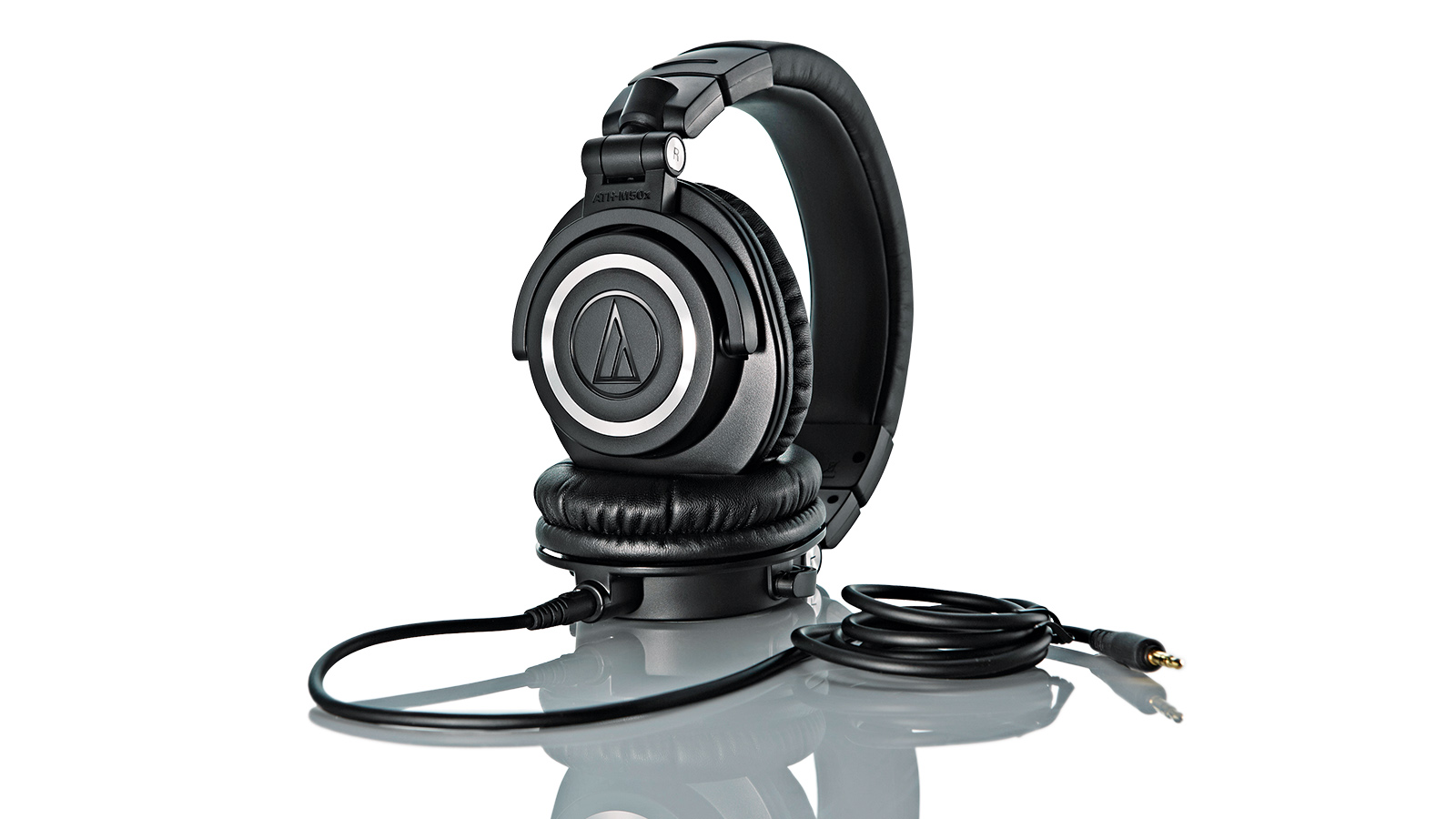
Specifications
Reasons to buy
Reasons to avoid
Audio-Technica’s venerable ATH-M50x studio headphones are a firm favourite amongst audio professionals for good reason - they sound excellent, offer a pleasingly warm sonic signature, and are supremely comfortable, durable and won’t break the bank.
It’s no surprise then, that these industry stalwarts make a perfect partner for your digital piano, with those fulsome low-end resonances, sparkly highs and concert hall reverbs reproduced with effortless clarity.
Although far from the cheapest cans on the list, a pair of these will more than return your investment in the long term, providing a personal piano partner to keep you inspired and practising long into the future.
Reads the full Audio-Technica ATH-M50x review
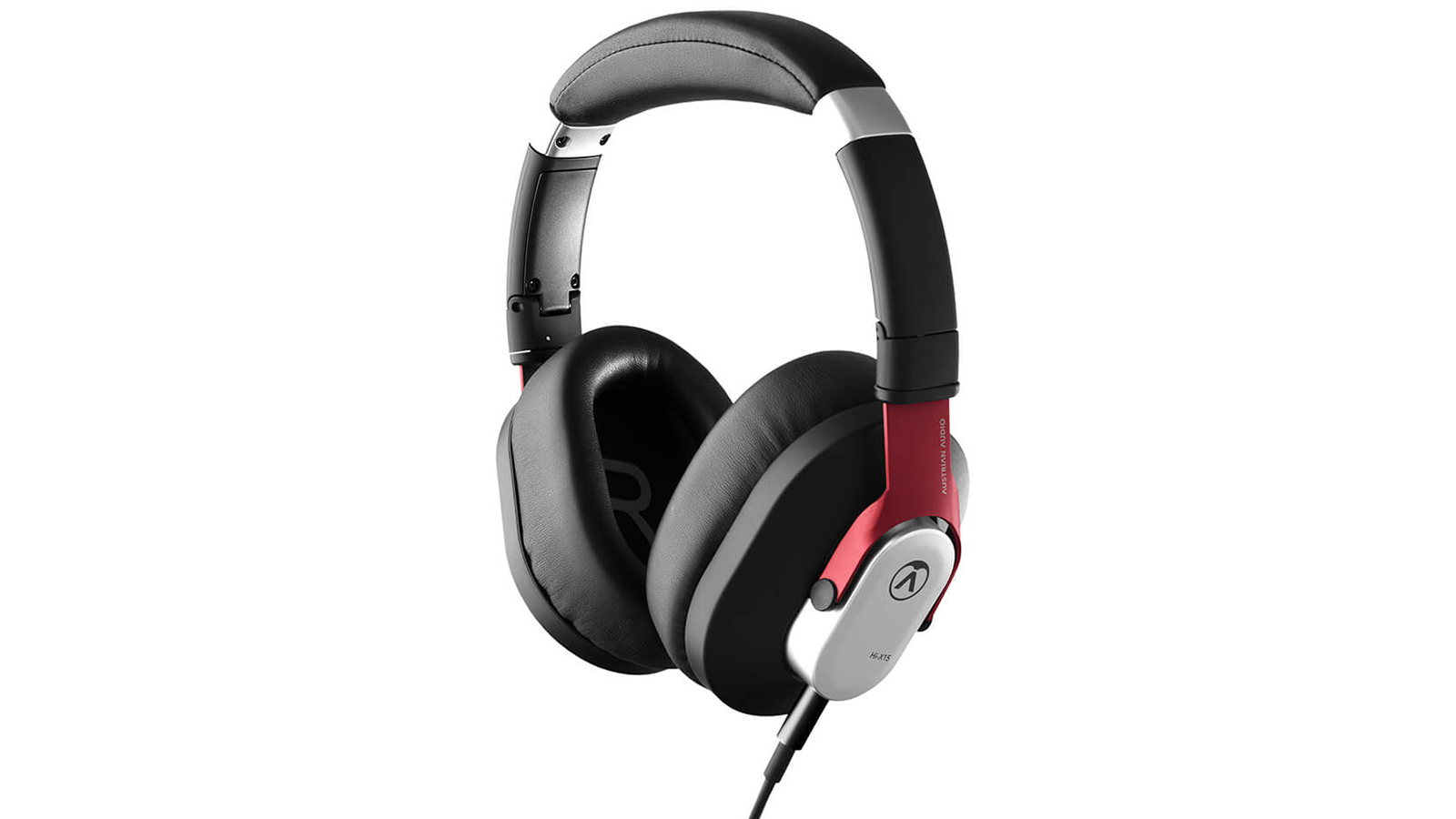
2. Austrian Audio Hi-X15
Our expert review:
Specifications
Reasons to buy
Reasons to avoid
Fledgling ex-AKG employee-founded company Austrian Audio has made impressive strides into the headphone sector of late, not least of which is the release of two new budget studio-centric models, the Hi-X15 and its Bluetooth-enabled cousin the Hi-X25BT. Of the two, we’d favour the cheaper Hi-X15 for use with your digital piano.
Featuring the company’s High Excursion Driver Technology, build quality is remarkable for the price, with strong, all-metal hinges and soft, slow-retention memory foam earpads. The cable is detachable, and therefore replaceable should the need arise, although we did find it a little on the short side at just 1.4m
The sound is neutral yet nuanced enough to reveal all the detail and resonances in your piano’s tone. Not just a great choice for your piano, the Hi-X15’s are versatile and durable enough to act as a great pair of studio headphones too, and will cope easily with anything your studio cares to throw their way.
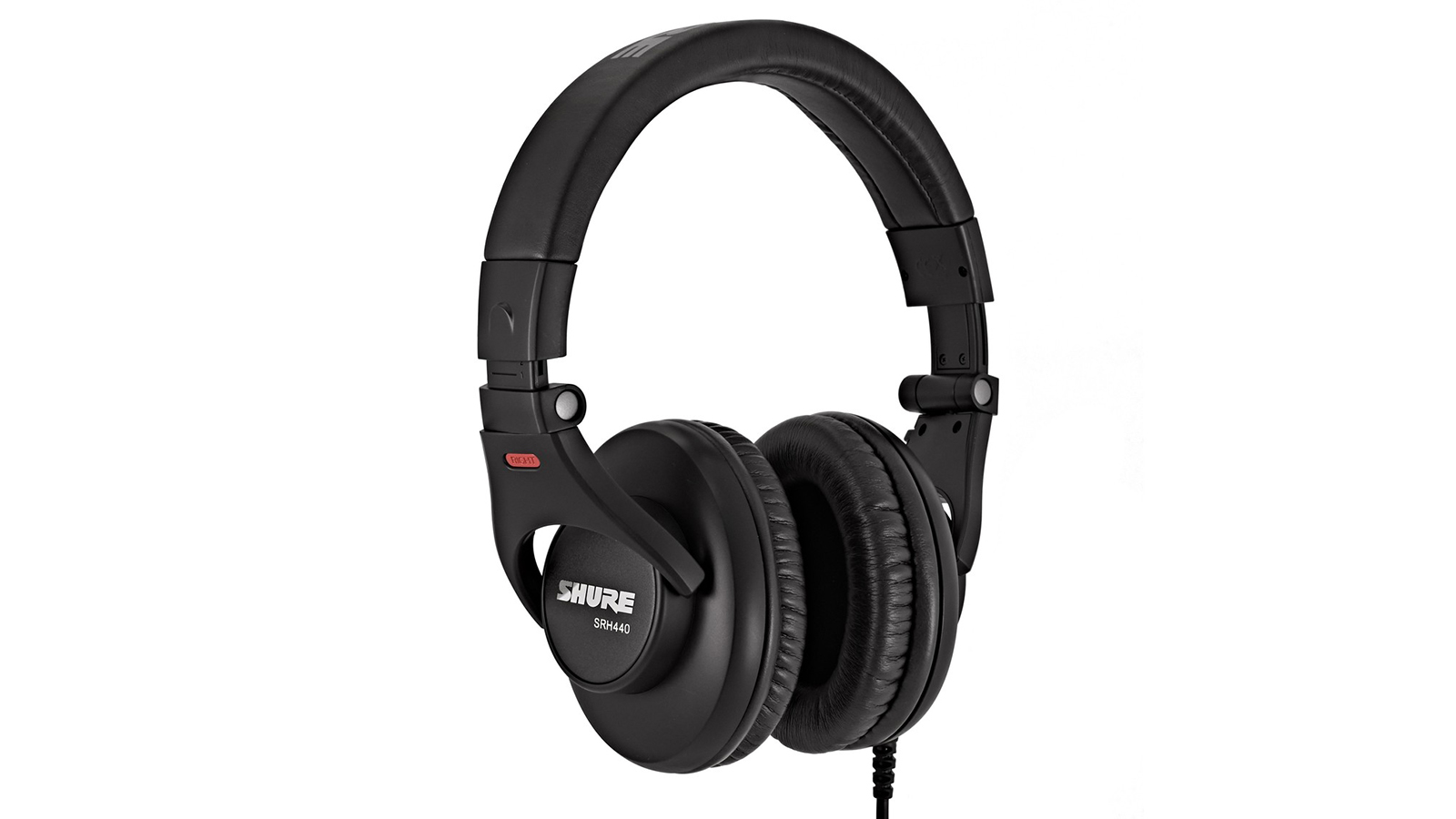
3. Shure SRH440
Our expert review:
Specifications
Reasons to buy
Reasons to avoid
Shure’s mid-priced SRH440 closed-back headphone has been optimised for performance with professional audio devices, including your digital piano, and ticks all the boxes on the checklist of features you’d expect from a set of studio-quality cans.
These include an accurate response over an extended frequency range, an adjustable padded headband for comfort, collapsible construction for portability, and a locking, coiled detachable cable for easy replaceability and freedom of movement while playing.
That list, coupled with Shure’s legendary robust build quality, all add up to an excellent package for prospective pianists.
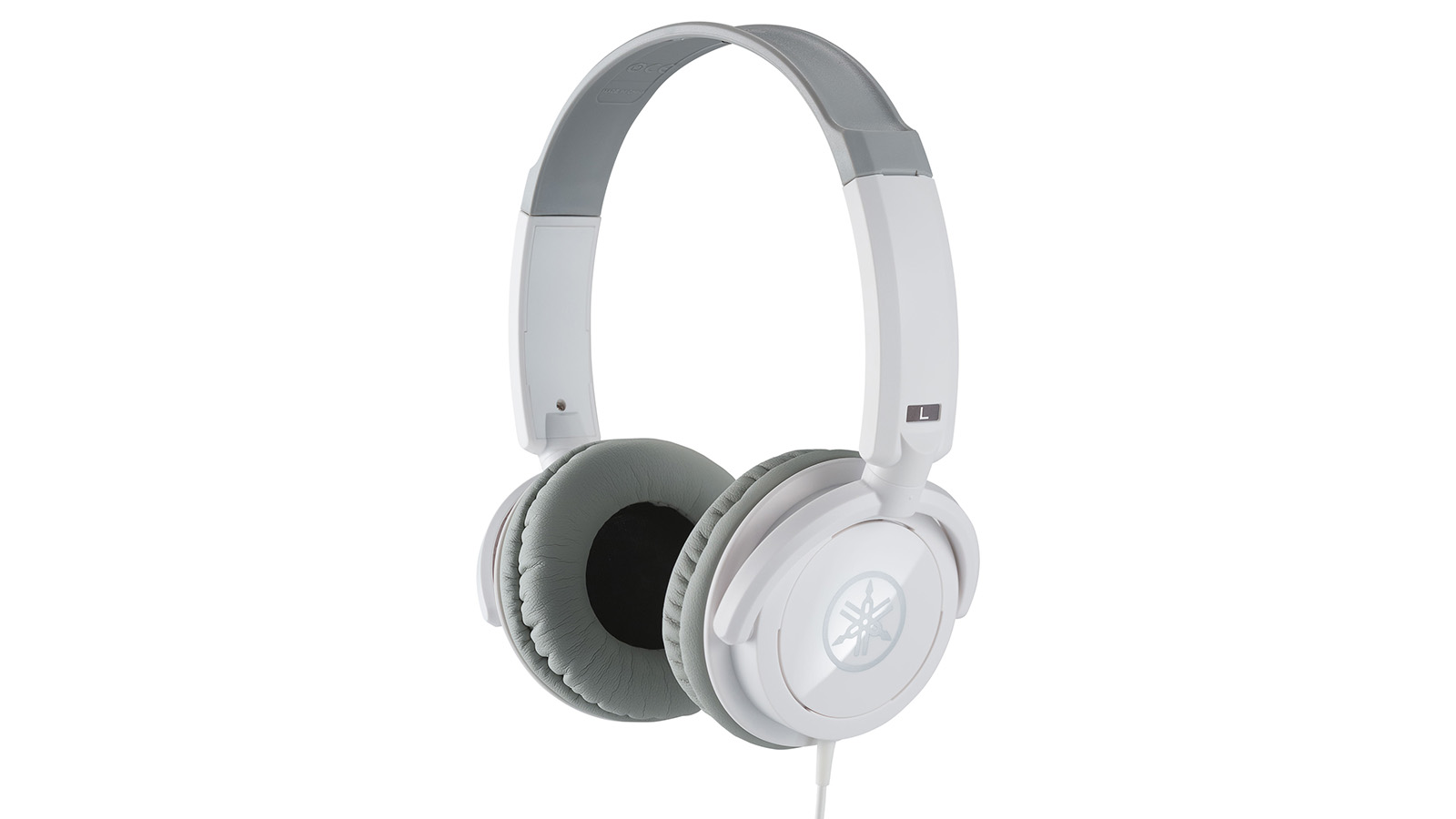
4. Yamaha HPH-100
Our expert review:
Specifications
Reasons to buy
Reasons to avoid
Japanese heavyweights Yamaha have for years been synonymous with both acoustic and, more recently, digital pianos. It’s no surprise, then, to discover that they also manufacture a range of headphones to accessorise their comprehensive range of digital instruments, designed to be the perfect match for your Yamaha keyboard or piano.
The lightweight, closed-back HPH-100’s sit squarely in the middle of the range, delivering a balanced bass and treble response especially suited to performing on digital instruments. Weighing only 148g and with swivelling earcups, these are super comfortable and a great option if you’re a Yamaha piano owner.
Of course, their use is in no way limited exclusively to Yamaha instruments, having been designed to faithfully reproduce piano sounds from any source. If you do own a Yamaha piano however, the HPH-100’s definitely warrant a look.
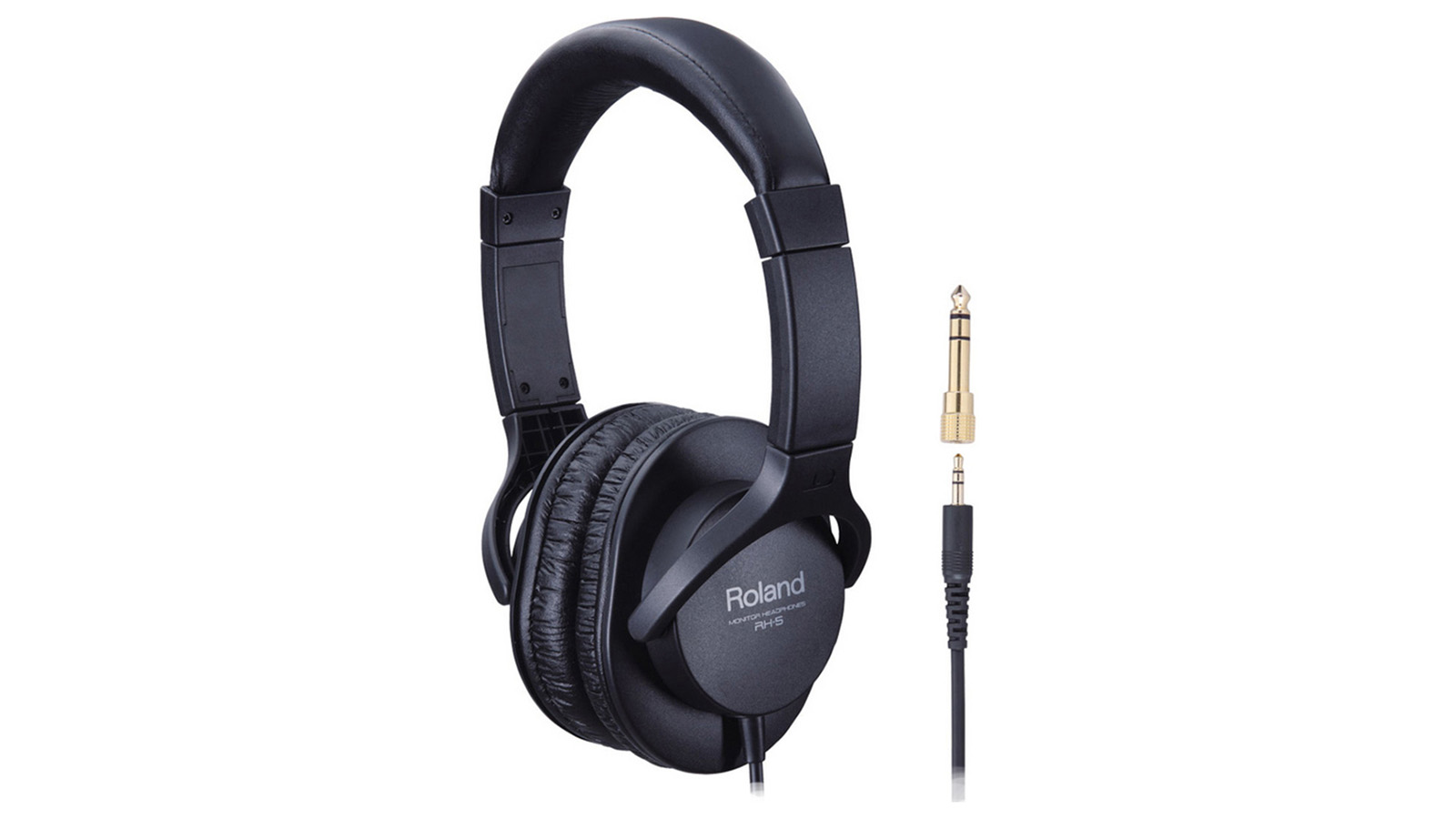
5. Roland RH-5
Our expert review:
Specifications
Reasons to buy
Reasons to avoid
One of the biggest digital piano manufacturers around, Roland also produces an extensive range of headphones to go with them. As the competitively priced, entry-level model in the RH range, the RH-5 is equipped with 40mm drivers specially designed to deliver a dynamic and balanced tone from beginner digital pianos upwards, plus synths and electronic drum sets (check out our guide to the best headphones for drummers for more specific choices).
Combining quality sound, a comfortable fit and an eyebrow raise-inducing bargain-basement price, the RH-5 should be near the top of your list if you’re a Roland piano owner not keen to shell out a huge amount on your headphones, but want the reassurance of that big name brand on the side of those padded earcups.
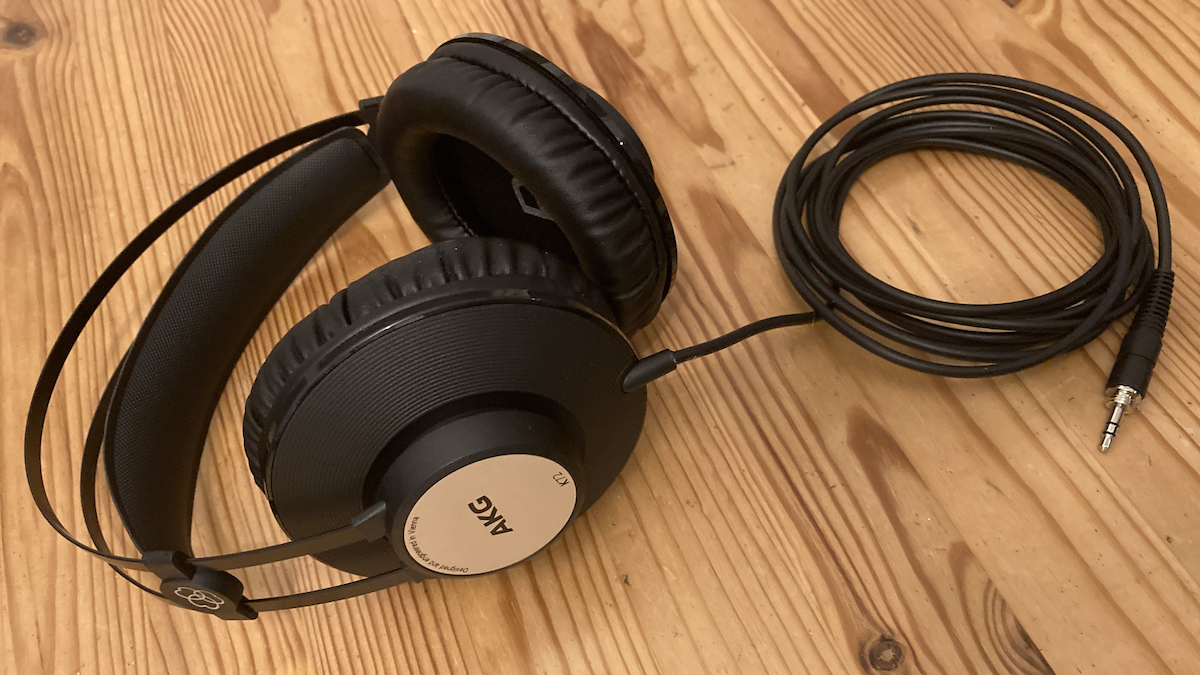
Specifications
Reasons to buy
Reasons to avoid
When a company has the kind of pedigree that AKG has, you know that any product bearing the name is bound not to disappoint. The keenly-priced AKG K72’s are a prime example of this.
The closed-back design with professional-grade 40mm drivers deliver an authoritative low-frequency response, while the detailed yet precisely balanced high-frequency response reveals every nuance of your piano playing. This is partly due to a new acoustic chamber located between the earcup and the hinge that connects to the headband.
Meanwhile, AKG’s signature self-adjusting headband design, breathable earpads and lightweight construction add up to a comfortable playing experience that packs a big punch at this price level.
Read our full AKG K72 review
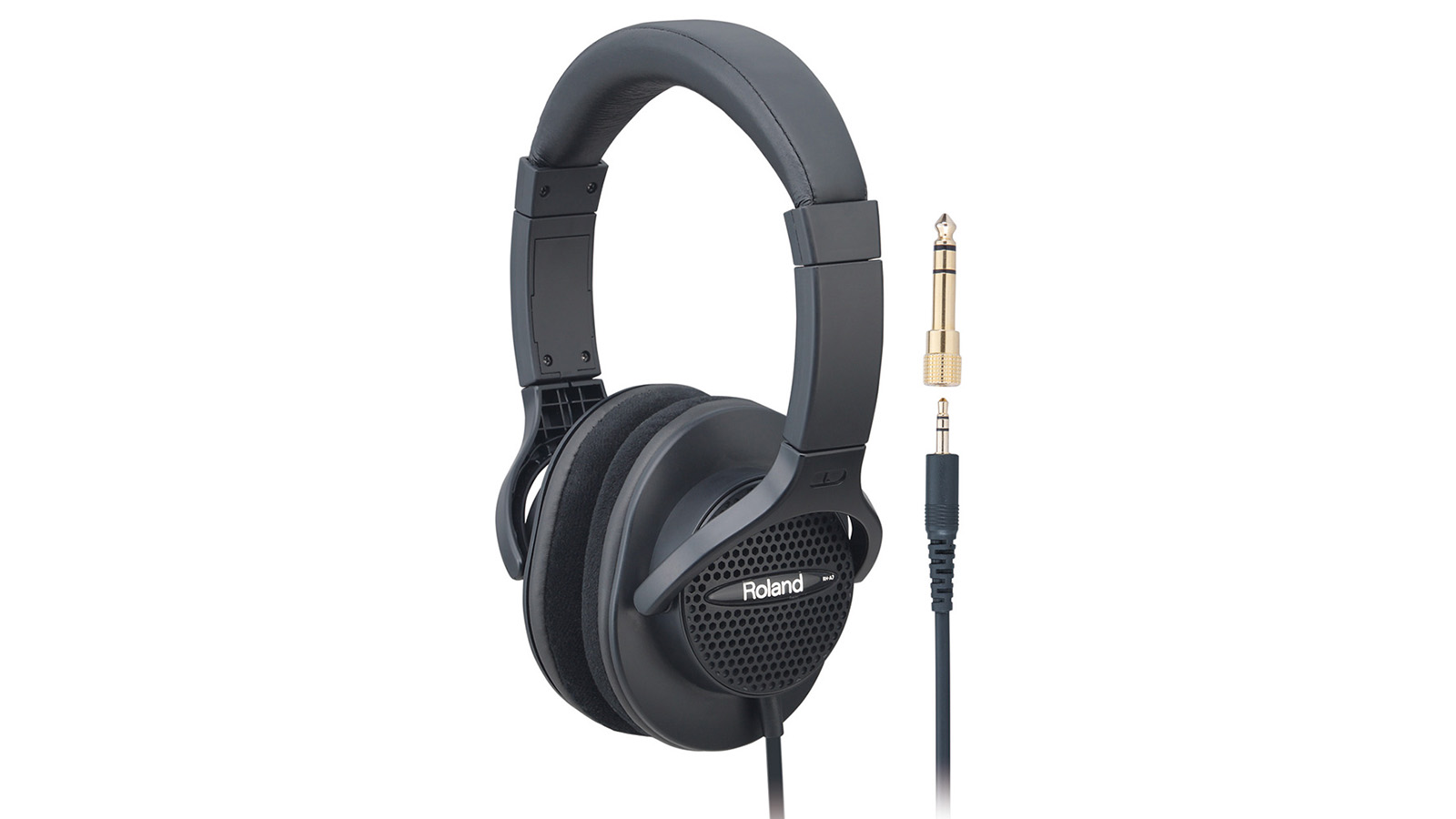
7. Roland RH-A7
Our expert review:
Specifications
Reasons to buy
Reasons to avoid
Open-back headphones are often thought to have a more natural, open sound than their closed back counterparts, as they allow air - and therefore sound - to escape through the back of the casing, preventing a potentially low-end compromising buildup of pressure within the headphone.
Roland’s open-back RH-A7 makes the most of this phenomenon, revealing your digital piano’s character in effortless depth and detail with a superbly wide soundstage. Lightweight yet durable, these deliver a well-rounded, natural sound and the luxurious suede earpads round off the experience.
The open-back design also allows you to hear your teacher’s advice between takes, a bonus as long as you don’t mind the small amount of sound leakage inherent with open-back designs.
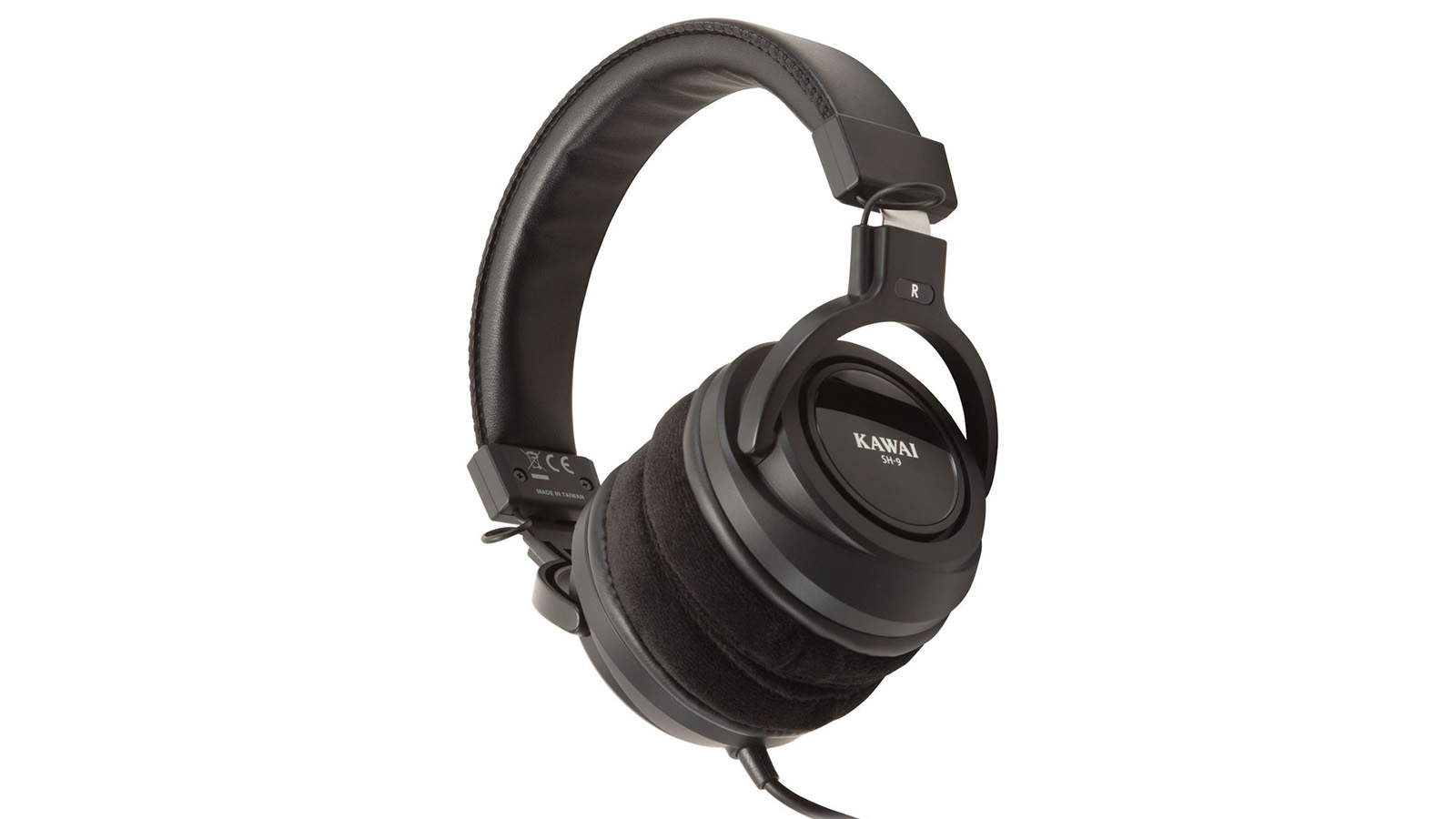
8. Kawai SH-9
Our expert review:
Specifications
Reasons to buy
Reasons to avoid
Kawai’s SH-9 headphones are relatively unusual in that they are a result of a collaboration between a respected piano manufacturer and a pro audio company to design a device specifically for use with digital pianos. Piano maestros Kawai have joined forces with fellow industry giants Audio-Technica to develop a dedicated set of cans specially optimized for the reproduction of digital piano sounds.
Originally intended for use with Kawai’s ATX3 & Aures piano models, it’s no great stretch to imagine that these should work equally well with most other brands and models of digital piano on the market. A semi-open back design and plenty of padding make the SH-9 a comfortable choice with a wide soundstage for extended practise sessions.
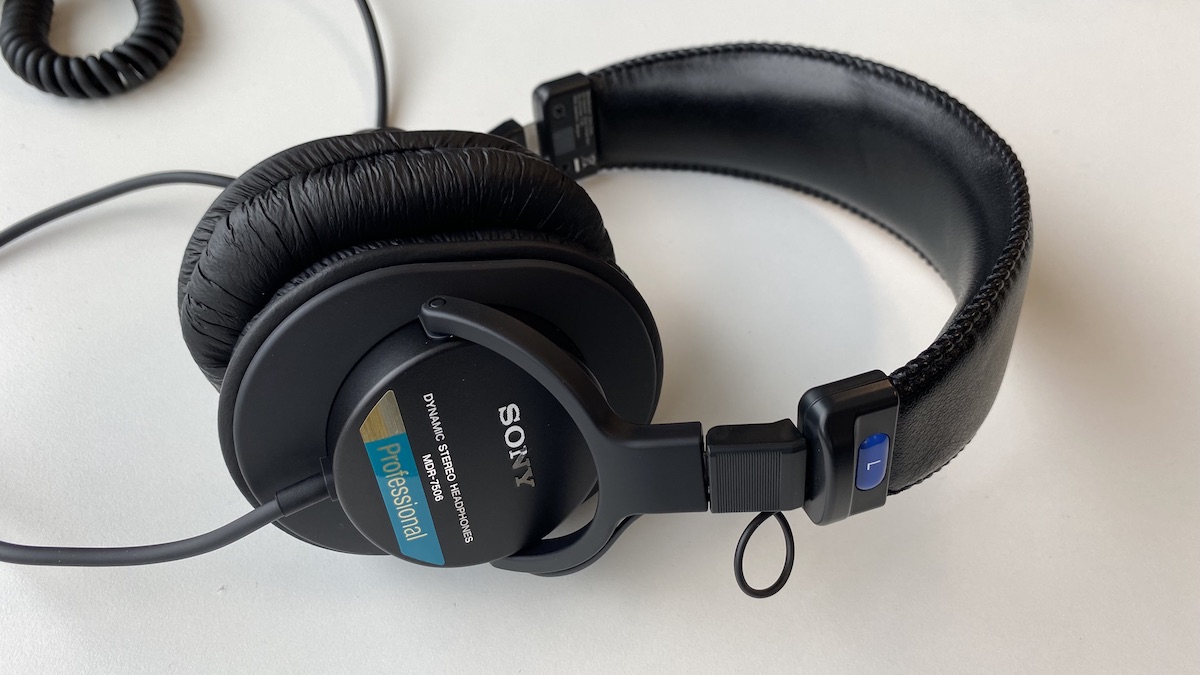
Specifications
Reasons to buy
Reasons to avoid
The Sony MDR series has been around for years and has a solid studio pedigree, borne out by decades of daily use in the recording and broadcast sectors worldwide. The current incarnation, the MDR-7506 is a brilliant combination of comfort, practicality and value.
Extremely comfortable to wear for extended periods, these are designed to expose details other cans might miss. On a par with headphones costing twice as much, the sound is punchy and clear throughout the spectrum (with a slight boost in the upper mids), while managing not to be overly-flattering.
So if you’re after an accurate picture of your piano’s sound, complete with all nuanced resonances and reverb detail revealed, these pro-recommended cans are well worth considering.
Read the full Sony MDR-7506 review
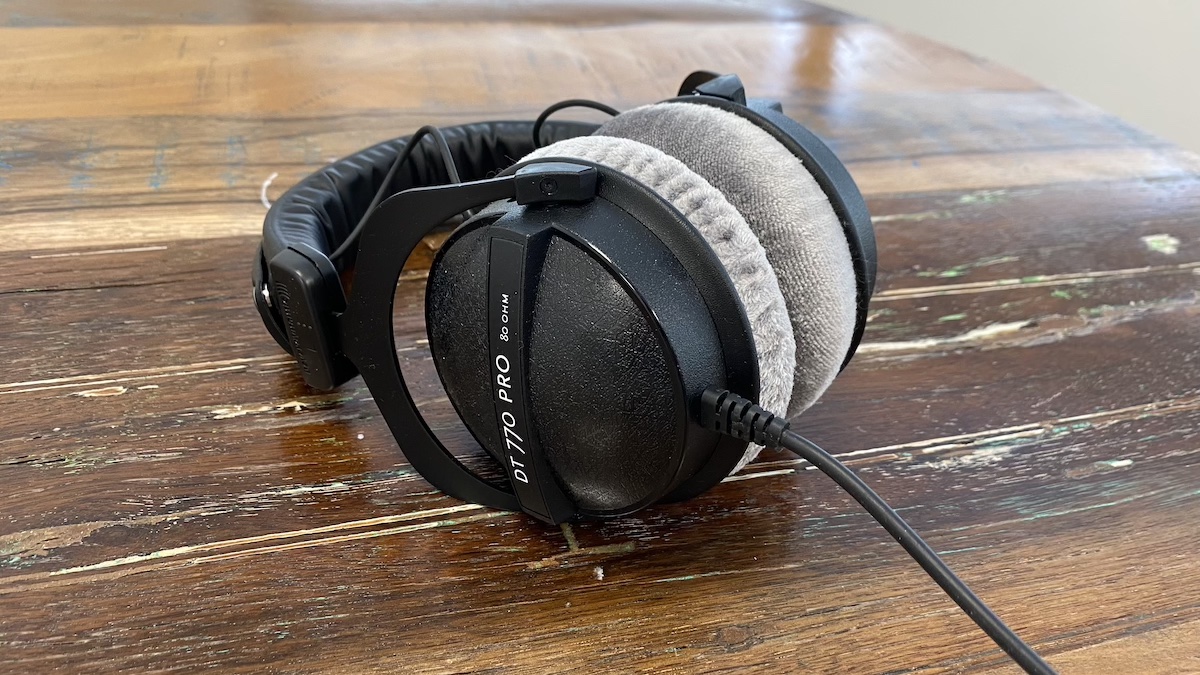
Specifications
Reasons to buy
Reasons to avoid
Another big pro audio household name, Beyerdynamic’s current headphone range is huge, but the DT770 Pro is a standout model easily capable of duking it out with the Audio Technica ATH-M50x when it comes to its status amongst studio cognoscenti.
Extremely well-balanced across the audible spectrum and incredibly comfortable due to the soft, velour padded ear cups, they’re able to be worn for long periods without issue while delivering a highly-detailed sound, making them an ideal partner for any digital piano.
The DT770 Pro is available in several models of varying impedance, but for use with your digital piano we’d recommend going for the 32Ω option. Not only will this most likely be the closest match to the output of your piano’s headphone amp, it’s also the most versatile option should you want to use your headphones for other studio-related tasks.
Read the full Beyerdynamic DT 770 Pro review
Best headphones for digital piano: Buying advice
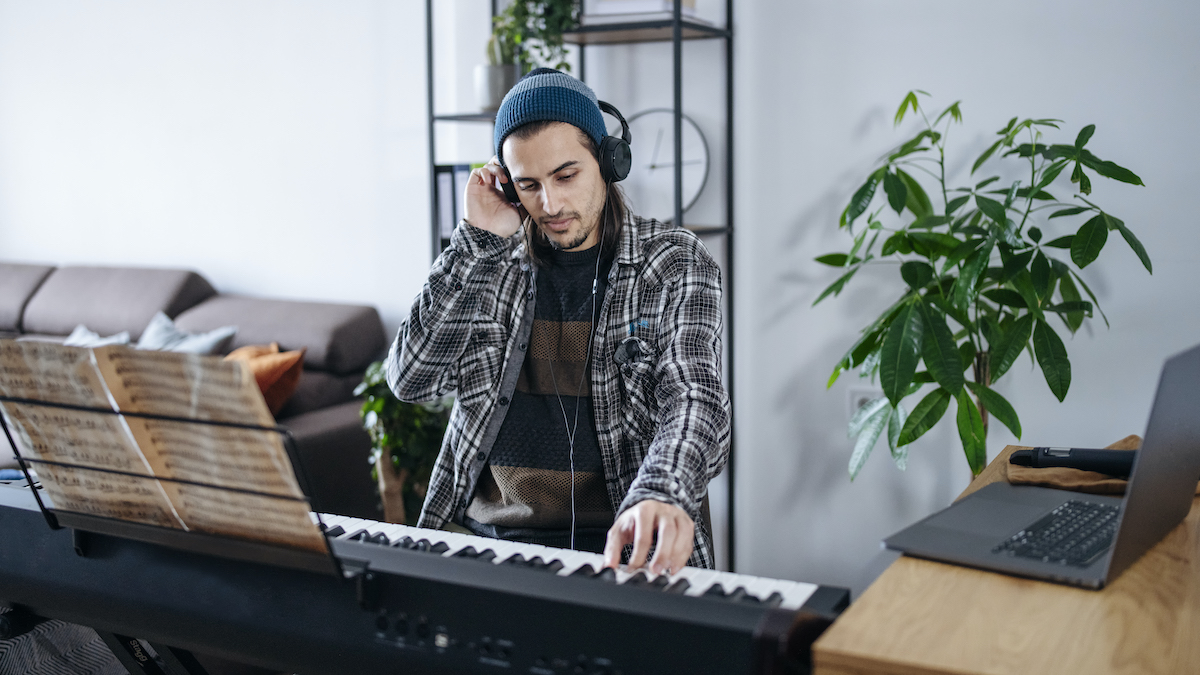
What are the most important things to look for in digital piano headphones?
There are four main considerations you should think about when choosing a pair of digital piano headphones. First is the frequency response. You want an even response across the frequency range to ensure you get the best sound possible in your ears. The better your piano sounds, the more you will be inspired to play.
Second, you want the isolation provided by your headphones to be enough to naturally block out external noise and unwanted distractions. A pair of closed-back headphones will do the trick here. Don’t be tempted to buy a pair of noise cancelling headphones, for reasons we’ll go into below.
Then there’s comfort to consider, especially if you plan on playing for hours at a time. Are the headphones heavy? Is the headband adjustable and made of forgiving materials? And what about the ear cups? Are they padded and constructed with breathable materials? Ear sweat is no joke. The less fatiguing your headphones, the longer you’ll want to play.
And finally, is the supplied cable long enough? Too short and you may end up unwittingly pulling out the plug and damaging your digital piano’s headphone socket. Get enough length so that you can comfortably move around in front of your piano whilst staying securely connected.
Why can't I use Bluetooth headphones for digital piano?
Connectivity-wise, we’d always recommend going for a wired rather than wireless pair of headphones to go with your piano. This is because, although several current models of piano feature Bluetooth connectivity, Bluetooth audio on pianos is not designed to stream audio from the piano to a set of Bluetooth headphones.
Instead, a piano’s Bluetooth feature is usually only so that you can stream audio from another device, such as a mobile phone or tablet - perhaps you’re working through some online piano lessons - through the piano’s speakers to play along to, or transmit MIDI data over Bluetooth to a DAW running on a separate device - like Garageband on an iPad, for example.
Although the idea of Bluetooth headphones for your digital piano may seem attractive at first, the delay or latency incurred in decoding the audio to a data stream and transmitting it over the air to your cans would have a detrimental effect on your playing. Although often only a few tens of milliseconds, this latency can mean that you’ll hear the sound of each note noticeably later than you actually played it, enough of a lag to make playing impossible. We cover similar themes in this article on the pros and cons of using Bluetooth headphones to produce music.
With cabled options, however, there are no such latency issues, the only real concern being that the cord should be long enough to allow expressive freedom of movement when playing.
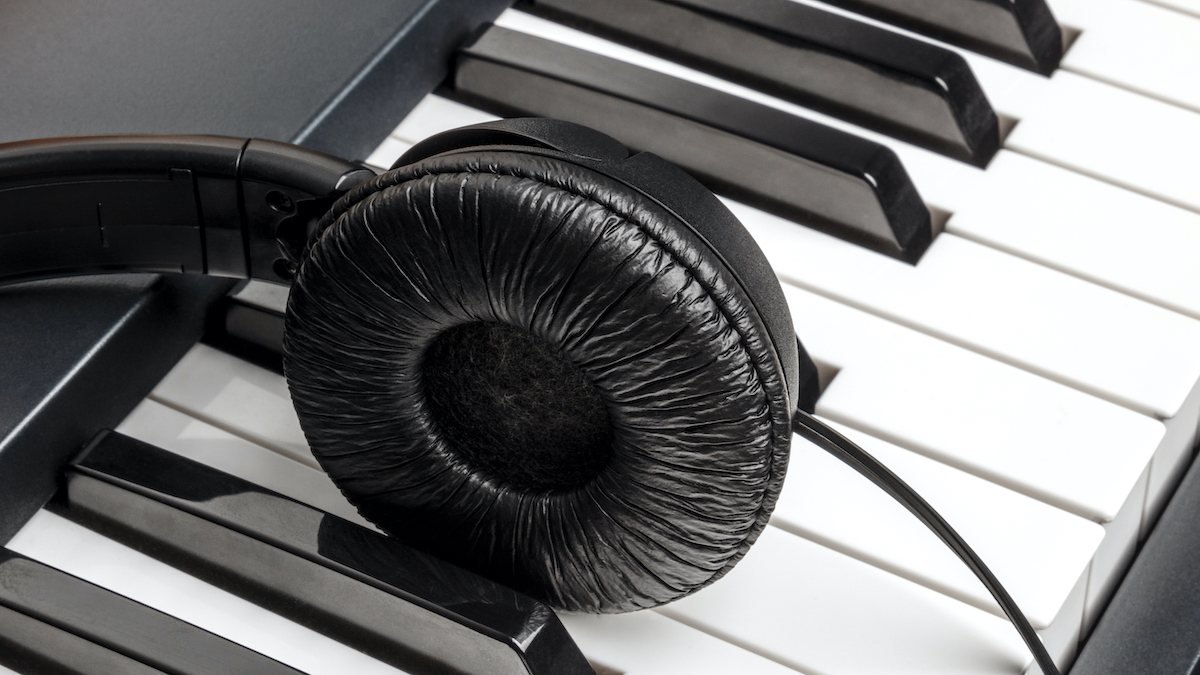
Can I use noise cancelling for digital piano?
Headphones that feature active noise cancellation should also be avoided when choosing a pair to use with a digital piano. Active noise cancellation algorithms can cause artefacts in the audio which can detract from the quality of your piano’s output, and will be extra noticeable with solo piano performances.
All of the headphones on this list are therefore traditional, cabled models with no active noise cancellation. We’ve got models made by the big piano manufacturers themselves for the perfect match to your particular brand, plus contributions from the usual suspects in professional pro audio, so your perfect pianistic partner should be somewhere in this list!
Find out more about how we test music gear and services at MusicRadar.
How we choose products
MusicRadar's got your back
Here at MusicRadar, we are experts in our field, with many years of playing, creating and product testing between us. We live and breathe everything music gear related, and we draw on this knowledge and experience of using products in live, recording and rehearsal scenarios when selecting the products for our guides.
When choosing what we believe to be the best headphones for digital pianos available right now, we combine our hands-on experience, user reviews and testimonies and engage in lengthy discussions with our editorial colleagues to reach a consensus about the top products in any given category.
First and foremost, we are musicians, and we want other players to find the right product for them. So we take into careful consideration everything from budget to feature set, ease of use and durability to come up with a list of what we can safely say are the best digital piano headphones on the market right now.
Find out more about how we test music gear and services at MusicRadar.
Related buyer's guides
- The best keyboard stands for every budget
- These are the best piano VSTs
- Essential piano accessories: everything you need to get started
- Best stage pianos: the finest keyboards for live performance
- Best headphones for drummers: use your e-kit in peace
- Step into the booth with the best DJ headphones
Want all the hottest music and gear news, reviews, deals, features and more, direct to your inbox? Sign up here.
Dave has been making music with computers since 1988 and his engineering, programming and keyboard-playing has featured on recordings by artists including George Michael, Kylie and Gary Barlow. A music technology writer since 2007, he’s Computer Music’s long-serving songwriting and music theory columnist, iCreate magazine’s resident Logic Pro expert and a regular contributor to MusicRadar and Attack Magazine. He also lectures on synthesis at Leeds Conservatoire of Music and is the author of Avid Pro Tools Basics.
